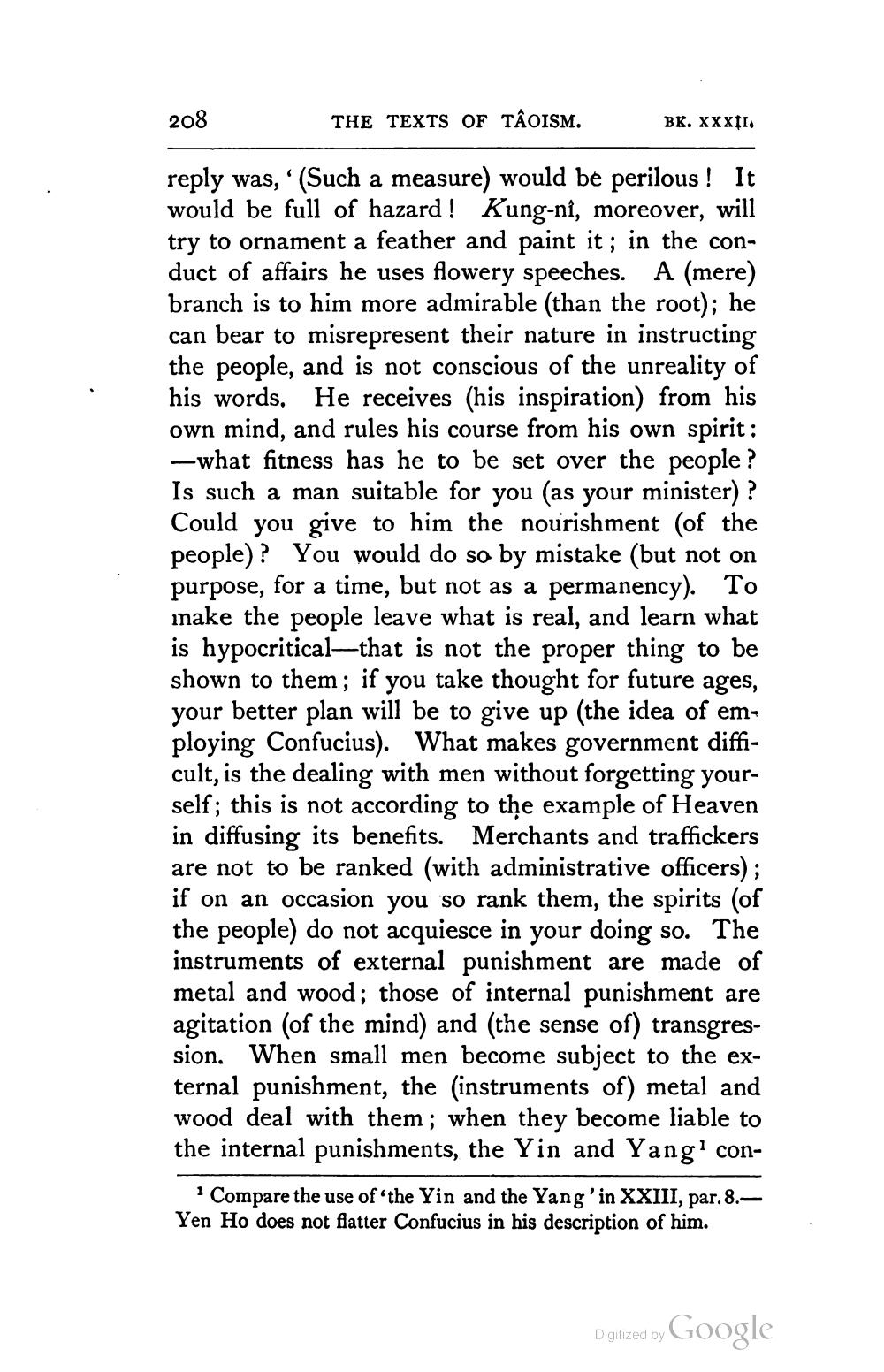________________
208
THE TEXTS OF TÂOISM.
BK. XXXII.
reply was, ' (Such a measure) would be perilous ! It would be full of hazard! Kung-nî, moreover, will try to ornament a feather and paint it; in the conduct of affairs he uses flowery speeches. A (mere) branch is to him more admirable (than the root); he can bear to misrepresent their nature in instructing the people, and is not conscious of the unreality of his words. He receives (his inspiration) from his own mind, and rules his course from his own spirit; -what fitness has he to be set over the people ? Is such a man suitable for you (as your minister) ? Could you give to him the nourishment (of the people)? You would do so by mistake (but not on purpose, for a time, but not as a permanency). To inake the people leave what is real, and learn what is hypocritical—that is not the proper thing to be shown to them; if you take thought for future ages, your better plan will be to give up (the idea of employing Confucius). What makes government difficult, is the dealing with men without forgetting yourself; this is not according to the example of Heaven in diffusing its benefits. Merchants and traffickers are not to be ranked (with administrative officers); if on an occasion you so rank them, the spirits (of the people) do not acquiesce in your doing so. The instruments of external punishment are made of metal and wood; those of internal punishment are agitation (of the mind) and (the sense of) transgression. When small men become subject to the external punishment, the (instruments of) metal and wood deal with them; when they become liable to the internal punishments, the Yin and Yang' con
1 Compare the use of the Yin and the Yang'in XXIII, par. 8.Yen Ho does not flatter Confucius in his description of him.
Digitized by Google




